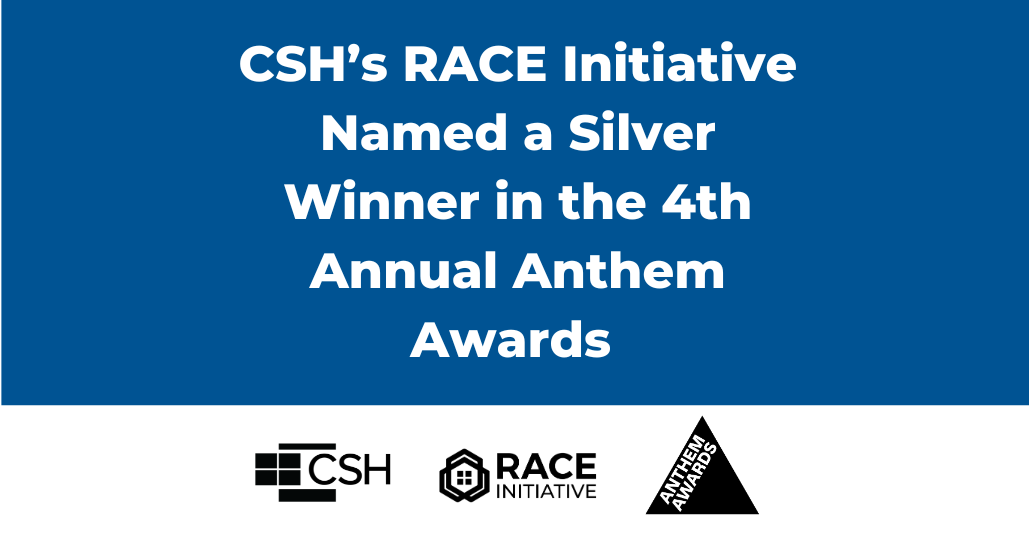We commemorated the twelfth year of our Speak Up! program by celebrating five advocates who shared their stories of experiencing homelessness, challenged stigmas associated with homelessness, and showed us what they learned during their time with Speak Up!
Since its inception, Speak Up! has supported over a hundred advocates who share their stories across the country. The program pairs advocates with volunteers from the performing arts, actors, writers, comics, and other professions, as personal story coaches for the duration of the program.
The advocates have helped to drive change to public policy and public systems that, although intending to assist people experiencing homelessness, often exacerbate and place burdensome hurdles to long-term housing stability. Many program advocates have gone on to speak at local, state, and national events, telling their personal stories of perseverance and advocating for proven solutions like supportive housing.
Click here to watch the full graduation video.
“Speak Up! Advocates push us all to center people with lived expertise as essential partners in ending homelessness, whose work and knowledge are valuable and valued, and whose whole personhood is respected,” said Dove Pressnall, CSH Speak Up! Clinical consultant.
Melvyn Rixley, a veteran and CSH Speak Up! advocate, was the first to share his story. Despite working several jobs as a radio jockey, bus boy, counsellor, etc., he could not keep up with the rising Los Angeles rents. He began his story by challenging the audience to reconsider their stereotypes of a person experiencing homelessness.
“My life path of having experienced homelessness has led me to become an advocate to change the perception of what homelessness looks like,” Rixley said. “My hope is that our legislators will not just view the homeless epidemic in this country from only one point of view. Not from the surface, but from the root, because the root is always the main cause.”
Rixley also pointed out the lack of resources available to people experiencing homelessness, leaving them with very few options for shelter and food.
Ena Fenderson, CSH Speak Up! advocate, also seconded the lack of resources when telling her story.
Fenderson experienced homelessness after the sudden death of her grandmother. “Here I am, unhoused and uncertain of how to receive help,” she said. “Where do I even go for assistance and advice?”
She described her transition to experiencing homelessness as eye-opening to the lack of resources her community offered for those in her situation. Eventually, Fenderson saw a poster for 211, an information hotline, while riding a bus.
“211 literally saved my life, and just as importantly, helped me rebuild my life and gave me the first hope I had had in a long time,” she said. “A hope I am dedicated to sharing with other people who find themselves in need.”
Fenderson is passionate about advocating for the same lifelines of hope for others.
“Now I am able to advocate that every community add resources so folks experiencing homelessness can receive the assistance and support they require,” she said. “This will allow them to get back on their feet, find stability, and gain independence.”
Gabriel Sheets, CSH Speak Up! advocate, also stressed the importance of finding stability. He experienced homelessness while being involved with the justice system.
“With the help of housing programs, I am keeping a house full time,” he said. “Now in a state of sobriety and a conscious mind, I can definitely stay committed to being focused on staying on the straight and narrow path and helping as many people as I can.”
Sheets described having stable housing as the most important aspect of his journey to well-being and getting back on his feet.
“I have a roof over my head and I have stability. Stability allows a person to keep focused on normal things: going to work and going home,” Sheets said. “If you don’t have that, all you have is survival mode. Stability gives you the opportunity to strive for more. Everyone needs a home, a place to go to.”
Shawna Riley, CSH Speak Up! advocate, also attributes her stability to finding housing. She experienced homelessness after being served unexpected court documents. “I refer to my story of homelessness as happy to homeless in just one hour,” she said.
Riley lived in her minivan with her son and her dogs, until the car stopped working and she lost custody of her son. Being in supportive housing has allowed her to reunite with her son and find stability.
“Today, I have a roof over my head, my son is with me, and I’ve been sober for four and a half years. I have a peace in me that’s beyond anything you can imagine,” she said. “I’m grateful for the life I have today, and I’m grateful to be a CSH Speak Up! Advocate.”
Andrew Medrano Jr., CSH Speak Up! advocate, had his life disrupted for decades while in prison.
“I didn’t think I was going to make it,” he said, describing how he had nowhere to turn after leaving prison. He found supportive housing through a friend and began searching for his family to reunite with them.
“For once, since I was five years old, I am home,” he said.
“I’m so grateful to be a part of this program because I want to help other people who are going through the same thing I have gone through. I know what it took to keep me out of prison, and to have me looking forward to the life I have always wanted,” Medrano said.
“It took someone to reach out to me and to help me understand what I have gone through and to take me where I’ve always needed to be. I know there’s a lot of people out there who want to help those who are still experiencing homelessness; well, you can meet them right where they’re at.”
Medrano now sits outside daily with those experiencing homelessness to provide companionship and support.
Dennis C. King, CSH Speak Up! Advocate `17 and TKE advisory council members congratulated each of the graduating advocates. He encouraged them to use their experience to fight for change.
“The CSH program had me take a good look at my life and areas I was not aware of yet. Now I ask you, did the course have you take a good look at yourself?” King asked.
“You are future leaders. I am hoping, knowing, that through the CSH course, you all gained a new sense of freedom.”




